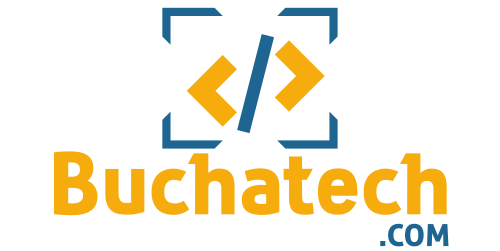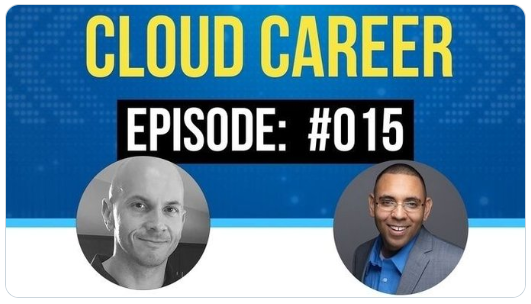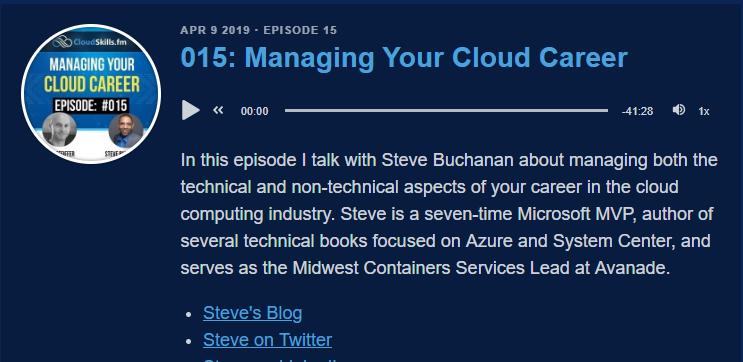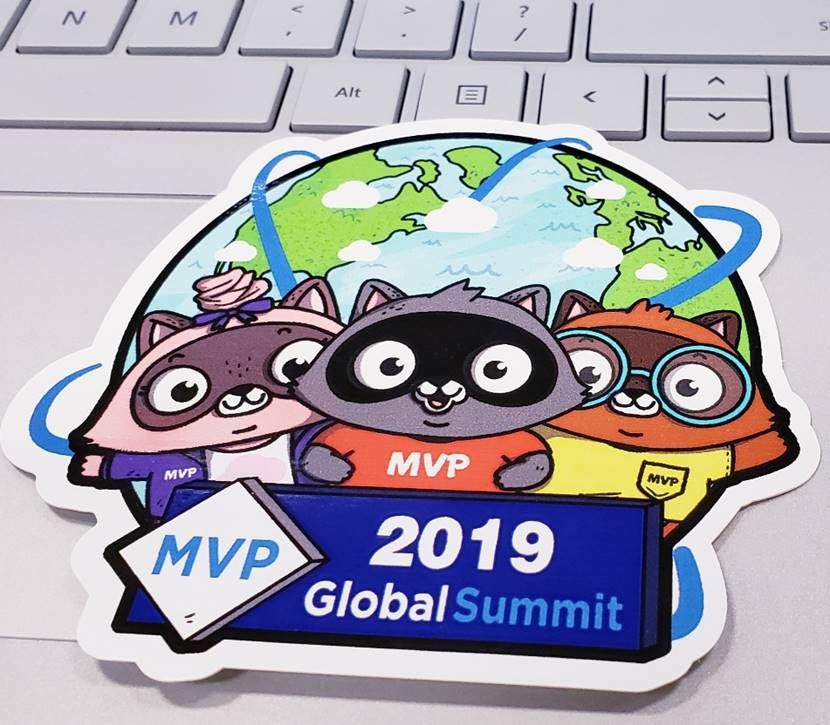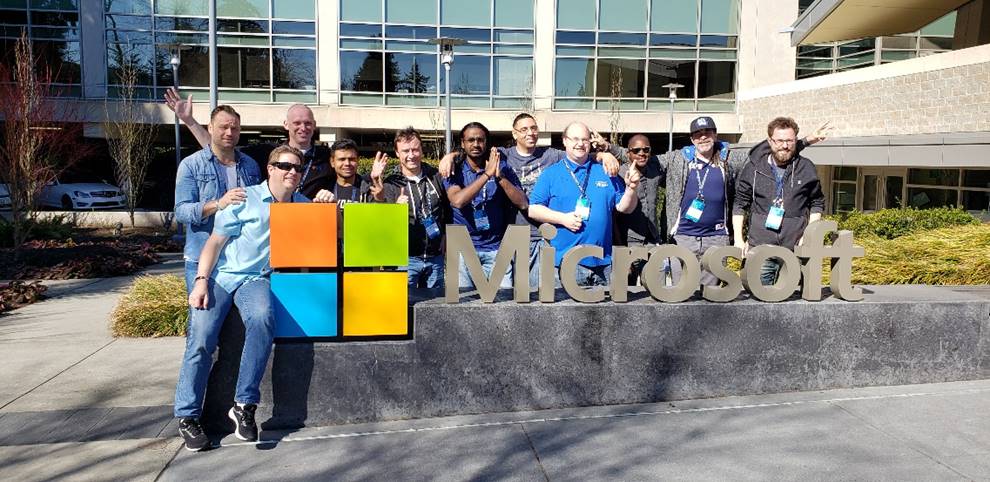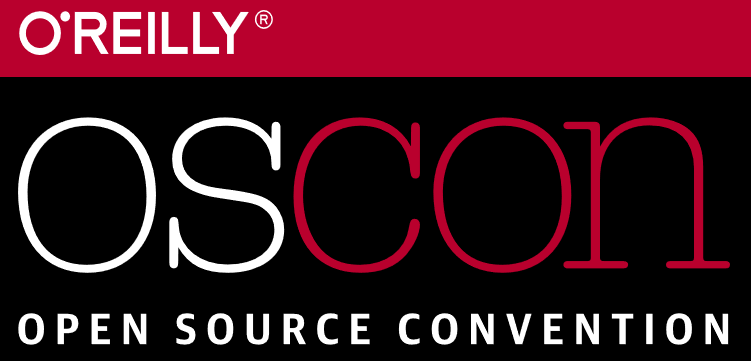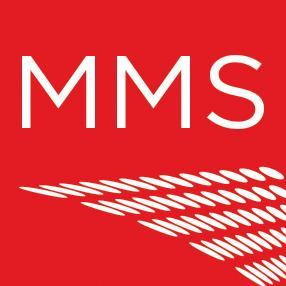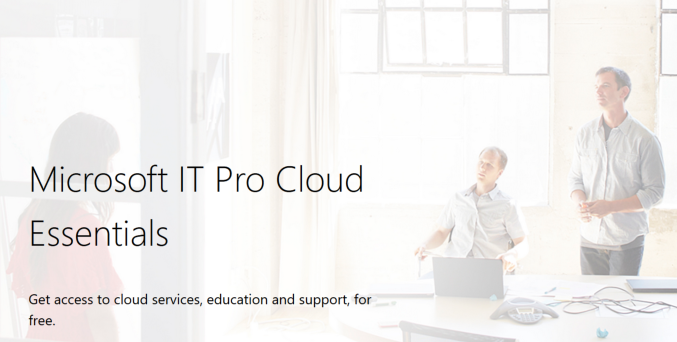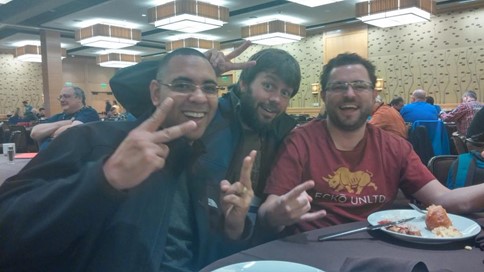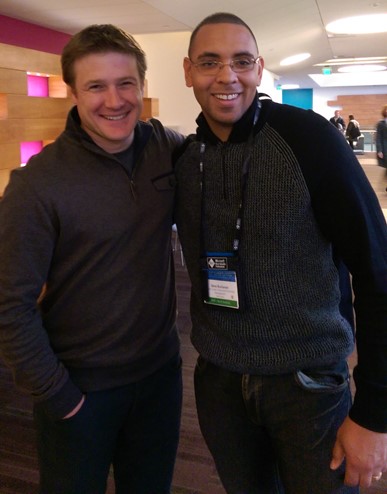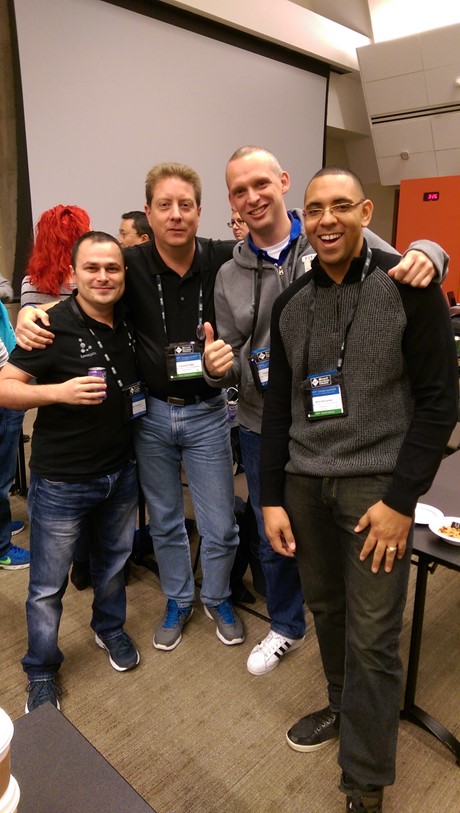2018 is almost over and it was an exciting year jam packed full of adventures! In this post I will recap some of the highlights from 2018.
New job
At the start of 2018 I started a new job with Avanade as a Group Manager: Cloud Transformation/DevOps. Who is Avanade? Avanade 35,000 plus employees and is a global consulting firm focused on the Microsoft platform. Avanade is owned by Accenture and Microsoft. I have been at the firm for exactly a year. It has been a fun ride so far working with really smart people on some exciting and very large projects. After I joined Avanade featured me on a Q&A spotlight blog.

You can check out the Q&A post here: https://www.avanade.com/en/blogs/inside-avanade/employee-stories/q-and-a-with-steve-buchanan
Moved from System Center focus to Azure/Azure Stack and DevOps
I moved away from System Center related work to only working on Azure, Azure Stack, and DevOps project. I had been making this shifting in this direction for a couple of years but the new job helped me transition to the type of work I wanted to do. I am a firm believer in change and through change comes growth. I still have my System Center skills but for me it was time to make a change in my career focus to be challenged and keep growing. Looking back I would make the same choice over again. You can see this change reflected in the blog topics I have posted, topics I have presented on this past year. My new role with Avanade has also helped me move my focus to cloud and DevOps.
Certifications/Training
I focused on and completed some Azure and DevOps certifications including: 70-535: Architecting Microsoft Azure Solutions and AZ-400: Microsoft Azure DevOps Solutions. However the one I am most proud of is the Microsoft Professional Program: DevOps. It took me 2 months to finish the training and all the labs to obtain the certificate. Here is a blog I posted about the training experience for the MPP: DevOps https://www.buchatech.com/2018/04/microsoft-professional-program-for-devops-finished. Here is a link to the my certificate: https://academy.microsoft.com/en-us/certificates/67284e84-8afe-4f13-b477-d7620949fb18.
I highly recommend any of the Microsoft Professional Program tracks. It is excellent training!
Changes in user group involvement
I stepped down from the MN System Center user group board after 6 years. The board is filled with great people and is as strong as ever. I will continue to speak at the UG from time to time when it makes sense and may even attend some of the meetings. I needed to step down to step up my Azure community focus. I have been leading the MN Azure user group for the past few years and now I am able to step up my involvement with this UG. More info about the MN Azure user group can be found here: http://mnazureusergroup.com Some of the key meetings/topics in my opinion from 2018 are
April Azure User Group Meeting: DevOps Best Practices for Azure and VSTS presented by Abel Wang, a Microsoft Cloud Developer Advocate. – https://www.meetup.com/Minneapolis-Azure-Cloud-Computing-Meetup/events/kdbbdpyxgbhb
May Azure User Group Meeting: Automate & Configure using Azure presented by Jenny Hunter – Program Manager Azure Management & Eamon O’Reilly – Principal Program Manager Azure Management. – https://www.meetup.com/Minneapolis-Azure-Cloud-Computing-Meetup/events/kdbbdpyxhbfb
August Azure User Group: Microsoft APIs presented by Kyle Weeks, an IT professional for the University of Minnesota. – https://www.meetup.com/Minneapolis-Azure-Cloud-Computing-Meetup/events/dtbmtpyxlbdb
September Azure User Group: Azure Bots with Node.js presented by Kamran Ayub, a software engineer for Target corporation & Pluralsight author. – https://www.meetup.com/Minneapolis-Azure-Cloud-Computing-Meetup/events/dtbmtpyxmbjb
October Azure User Group: Azure Resource Manager Concepts – Simplified presented by Brian Moore, a Program Manager on the Azure Resource Manager Team. – https://www.meetup.com/Minneapolis-Azure-Cloud-Computing-Meetup/events/dtbmtpyxnbgb
As you can see we had some really great speakers both from the community and Microsoft. We do our best to collect the slides from presenters and upload them on the UG site. Past meeting info is here: http://mnazureusergroup.com/category/past-meetings
Key blog posts
With everything else going on I did my best to keep up with new blogs over the year. Same theme with my blog topics being focused on Azure and DevOps. Some of my key blogs from 2018 are:
ARCHITECT YOUR CLOUD WITH AZURE BLUEPRINTS
https://www.buchatech.com/2018/09/architect-your-cloud-with-azure-blueprints
SETUP CI/CD PIPELINE WITH VSTS & AZURE STACK
https://www.buchatech.com/2018/02/setup-ci-cd-pipeline-with-vsts-azure-stack
NATIVE CLOUD MANAGEMENT IN AZURE
https://www.buchatech.com/2018/03/native-cloud-management-in-azure
AZURE MANAGEMENT GROUPS
https://www.buchatech.com/2018/03/azure-management-groups
AZURE COST MANAGEMENT (CLOUDYN)
https://www.buchatech.com/2018/03/azure-cost-management-cloudyn
AZURE POLICY
https://www.buchatech.com/2018/03/azure-policy
CLOUD SECURITY VIA SECURITY CENTER
https://www.buchatech.com/2018/09/cloud-security-via-security-center
In 2018 I had a really cool opportunity to write a blog for the official Azure blog on Azure Stack and DevOps. Here is the title and link.
“The importance of Azure Stack for DevOps” on the official Azure blog:
https://azure.microsoft.com/en-us/blog/the-importance-of-azure-stack-for-devops
Speaking
2018 was full of speaking opportunities from speaking at Azure events for Avanade, user groups, conferences and even on another continent. Here are highlights from where I presented in 2018.
MN Azure User Group
I was honored to kick of the MN Azure User group meetings last year with a session on Azure Stack. It was the February Azure User Group where I presented on Azure Stack Unleashed in 45 minutes to 131 attendees. Here is the link to the past meeting: https://www.meetup.com/Minneapolis-Azure-Cloud-Computing-Meetup/events/245935696
MMS 2018 – https://mmsmoa.com
I was a speaker at MMS again in 2018. This time I delivered “5” sessions. Whoa! That was a whirlwind. Here is my MMS 2018 profile: https://mms2018.sched.com/steve_buchanan.1sw4e0n3. Here is a list of the 5 sessions:
Hybrid Cloud Unleashed with Azure Stack and Azure – With Microsoft MVP’s Steve Buchanan and Florent Appointaire
https://mms2018.sched.com/event/EeQy/hybrid-cloud-unleashed-with-azure-stack-and-azure
Insight into the Micro-Service & Container Technology that Powers Microsoft’s Cloud – With Microsoft MVP’s Steve Buchanan and Lee Berg
https://mms2018.sched.com/event/EeR3/insight-into-the-micro-service-container-technology-that-powers-microsofts-cloud
Monitoring Azure PaaS – With Microsoft MVP’s Steve Buchanan and Cameron Fuller
https://mms2018.sched.com/event/EeTC/monitoring-azure-paas
Soup to Nuts of Azure Site Recovery – With Microsoft MVP’s Steve Buchanan and Robert Hedblom
https://mms2018.sched.com/event/EeR4/soup-to-nuts-of-azure-site-recovery
ITSM Tools and Log Analytics: The Perfect Integration – With Microsoft MVP’s Steve Buchanan and Florent Appointaire
https://mms2018.sched.com/event/EeR1/itsm-tools-and-log-analytics-the-perfect-integration
Note you can download the decks from any of the sessions on the previous links.
BITCon 2018 – https://www.bitcon2018.com
This was the Inaugural conference for Blacks in Technology. BITCon brought together all walks of life in tech such as professionals, entrepreneurs, influencers, subject matter experts, students, and thought leaders.
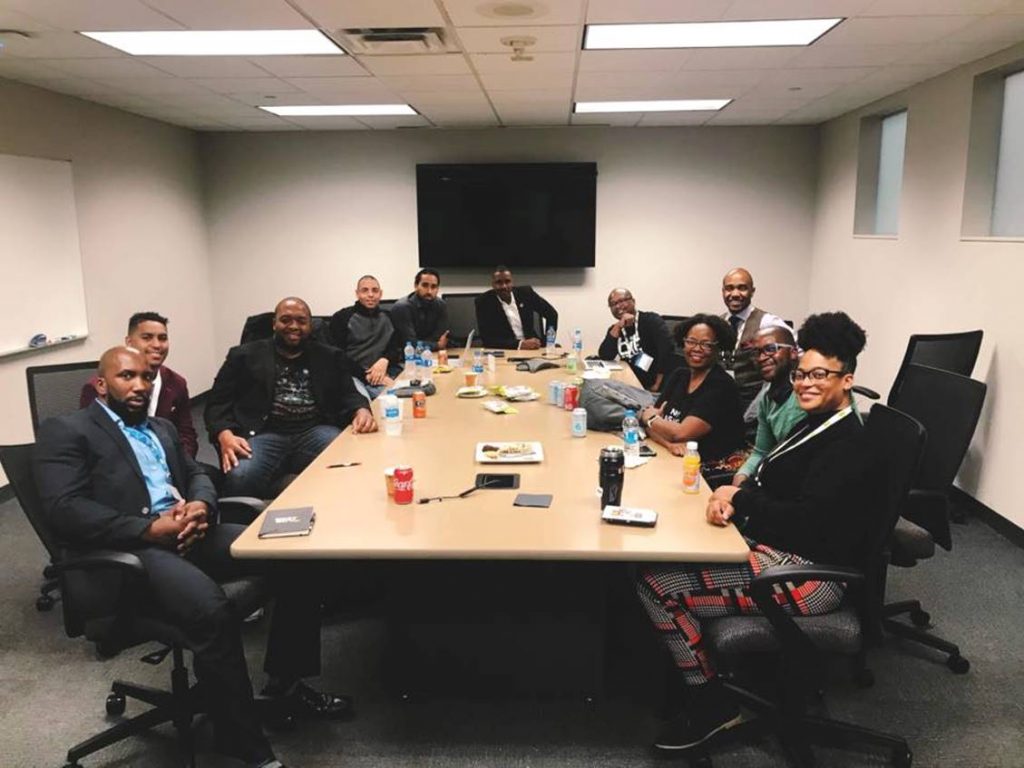
Read more

